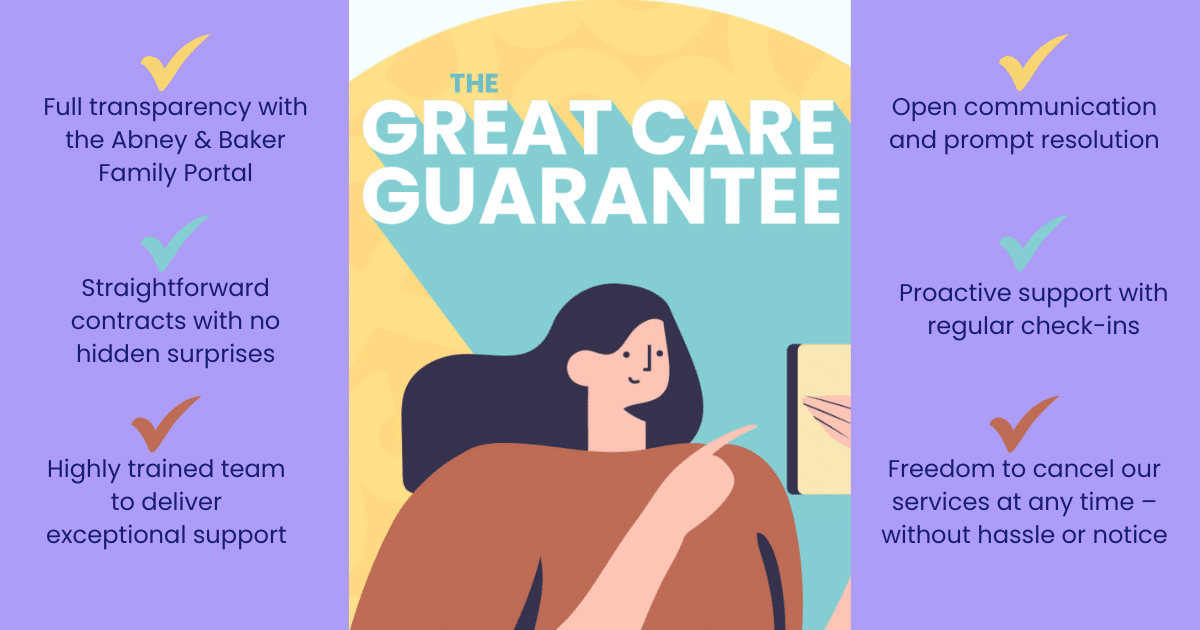Dementia and other related conditions, such as Alzheimer’s disease, can cause your loved one to have drastic changes in their behaviour and personality. As a result, they can hit, scratch, and even bite. They can also become insulting and aggressive towards their carer and other family members.
The changes are caused by such changes in the brain of your loved one, and they can come out without any warning. Unfortunately someone who was always kind can turn violent from dementia.
Caring for your loved one diagnosed with dementia is not only physically exhausting, but also mentally and emotionally challenging. Combine it with potentially aggressive behaviour from your loved one, it can leave you feeling emotionally drained.
This type of behaviour can often be the tipping point of people considering a residential care home but it doesn’t need to be that way. The good news is there are ways to manage these challenging behaviours, including strategies on what to do and how to make future incidents less likely.
What aggression might look like in someone with dementia
The aggressive behaviour exhibited by your loved one can be categorised into two categories:
- Verbal: cursing, yelling, making threats, insults
- Physical: hitting, kicking, scratching, pinching, biting, pulling hair, throwing things, moving around in an aggressive way.
It’s possible that your loved one had an aggressive personality even before they were diagnosed with dementia. In such cases, they may stay the same after the diagnosis.
However, if your loved one was a quiet, peace-loving person known for their sweetness, they may also change and become aggressive. This sudden aggressive behavioural change shows the disease is damaging their brain.

Aggressive behaviour by stage of dementia
Your loved one will begin to show aggressive behaviour in the middle stages of the disease. Other symptoms will accompany these changes, such as wandering, hoarding, constant packing up their belongings, and other compulsive behaviours.

Why aggressive behaviour happens
There’s usually a cause for aggressive behaviour, so it’s important to figure out what that reason is. If your loved one seems angry and is acting aggressively, check for any pain first.
Dementia patients cannot express their discomfort and pain. Look for signs such as stroking a certain part of the body, tense facial expressions such as clenched teeth or inverted eyebrows, abnormal body language, change in appetite, and dental problems.
You can also check if certain people annoy them or something in their nearby environment frustrates them. Finding a pattern will help you reach the root of the problem and help manage your loved one’s aggression.
Physical causes
1. Pain or Illness

2. Medications
3. Environment
4. Hallucinations and/or Delusions
5. Diet
6. Diminished Sensory Perception
Emotional causes
1. Loneliness

2. Boredom
3. Distrust
4. Loss of Reality
5. Loss of Control
Coping & solutions for aggression in dementia patients
When it’s happening

When you see your loved one is angry, step back and take a deep breath. Try not to give a reaction, because if you respond, the situation might get worse.
Try to calm the environment by closing off the TV, music and asking other people to step outside the room.
It’s important to never shout or give a physical response. Acknowledge their feelings and try to change the subject whilst maintaining eye contact throughout the conversation.
Massage, aroma therapy, pet therapies, and any strategy to improve your loved one’s mood are useful for moderating aggression so worth looking into further.
Managing aggression longer-term
To manage your loved one’s anger issues in the long run, here are some guidelines:
- Always communicate effectively and clearly
- Use labels and signs to keep your loved one from getting confused and irritated
- Know your loved one’s routine, so they’re not agitated
- Take them for exercise/fresh air regularly
Does Medication Help with Aggression?
For caregivers
As a caregiver, it’s important to never take the behaviour of your loved one personally. Easier said than done, we know! But whenever you feel like that, remember that these are the symptoms of the disease, your loved one does not control their condition.
You can join a therapy group or speak to a friend who can listen to your struggles. There are also online communities who provide great support and shared experiences from people in similar situations. It’s important to manage your caregiver stress, because a stressed-out caregiver won’t be as effective in helping and dealing with heightened emotions or reacting to aggressive behaviour.
Remember that your loved one diagnosed with dementia can sense that if you’re stressed out and they will respond poorly if you express frustration.
Home care services at Abney & Baker
After the diagnosis, your loved one will not only start their treatment, but will also have to adapt to a new lifestyle to slow down the progression of the disease.
At Abney and Baker, we provide domiciliary care for your loved ones affected by dementia. Our speciality care is a long-term care solution for your aged loved one. Providing not only dementia care services, but giving your family tried and tested tips to help you and your loved one lead happy lives.
Your satisfaction is our top priority at Abney and Baker, so we provide the best-in-class home care services. Click here to learn
Helping your loved one to continue living independently and confidently in their own home.
By providing a range of support at home, we’re helping many clients across Bath & North East Somerset and West Wiltshire retain their independence and stay in control in the comfort of their own homes.
Remember we’re always here if you want to chat about your care options. Just get in touch:
Call 0333 043 4880 – Email enquiries@abneyandbaker.com – Book a call here














